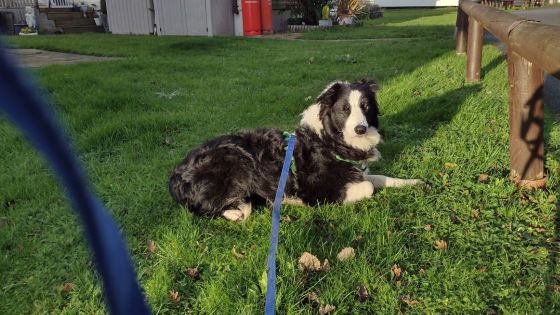As our furry friends age, their exercise needs change. It’s crucial to strike the right balance between keeping them active and ensuring they don’t overexert themselves. In this article, we’ll explore just how much exercise senior dogs require to stay healthy and happy.
Knowing your dog as well as you do, you will be the best judge of whether or not a change in the type or frequency of exercise is needed. Instead of 1 hour long walk a day, your dog may benefit from 3 or 4 shorter outings.
Understanding Your Senior Dog’s Needs
Senior dogs have varying exercise requirements based on factors such as breed, size, and overall health. While some senior dogs may still have high energy levels (like my 11 year old foster dog Roxy!), others may need gentler forms of exercise. Your veterinarian may be able to help you determine the most suitable exercise regimen for your furry companion.
Tailoring the Exercise Routine
When crafting an exercise routine for your senior dog, consider low-impact activities such as leisurely walks, gentle hikes, or even swimming. These exercises can help maintain muscle tone and joint flexibility without putting excess strain on their aging bodies. Remember to factor in any existing health conditions or mobility issues your senior dog may have.

Quality Over Quantity
It’s not just about the amount of exercise; the quality of the activity matters too. Shorter, more frequent exercise sessions may be more beneficial for senior dogs compared to one long session. Keep an eye on your dog’s energy levels and adjust the intensity and duration of the exercise as needed.
Signs of Overexertion
Watch out for signs that your senior dog may be overexerting themselves during exercise. Panting excessively, lagging behind, or showing signs of discomfort are red flags that indicate it’s time to take a break. Always prioritize your dog’s well-being and make adjustments to their exercise routine accordingly.
In the warmer months, walking earlier in the morning and later in the evening may be more comfortable for your dog. Bring water and get him a cooling vest or bandana.
Mental Stimulation Matters
In addition to physical exercise, mental stimulation is equally important for senior dogs. Engage their minds with puzzle toys, training sessions, or interactive games to keep them mentally sharp and satisfied. A well-rounded approach that incorporates both physical and mental stimulation is key to your senior dog’s overall well-being.
Conclusion
Understanding and meeting the exercise needs of your senior dog is crucial for ensuring their health and happiness in their golden years. By tailoring their exercise routine, monitoring for signs of overexertion, and providing ample mental stimulation, you can help your furry companion thrive well into their senior years. Remember, a happy dog is a healthy dog!
Incorporate these tips into your senior dog’s routine and watch them flourish in their later years. As always, consult with your veterinarian for personalized advice tailored to your senior dog’s specific needs.
If you’re looking for a community of senior dog parents, a place where you can find helpful tips, support and people who “get it” please join my FB group Senior Dog Care Club
I’m excited to announce my new Senior Dog Care Support Service.
I offer 1:1 support on everything from health & wellness advice and training tips, to preparing to say goodbye and grief counselling. You can find details on all the packages I offer by visiting the Senior Dog Care Support Service page. If you have any questions or would like to book your FREE 15 minute chat, please email hpearson141@gmail.com
I’ve been rescuing and caring for senior dogs since 2009. From vision and hearing loss to obesity, dementia, kidney disease, liver issues, cardiac problems, Cushing’s, mobility challenges and more, you could say I’ve dealt with and learned a lot! In addition to my hands on experience, I’ve taken many courses and earned several qualifications to keep learning how to help senior dogs and they include: Senior Dog Enrichment, Understanding Canine Anxiety, Care of the Senior Pet and I’m a Certified Pet Loss Specialist.
